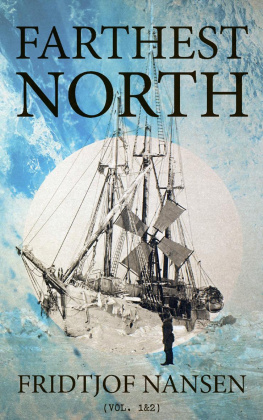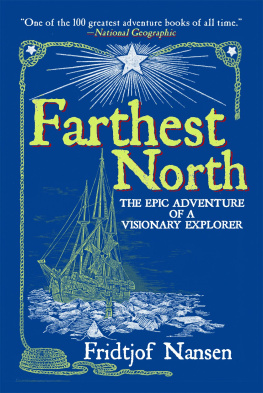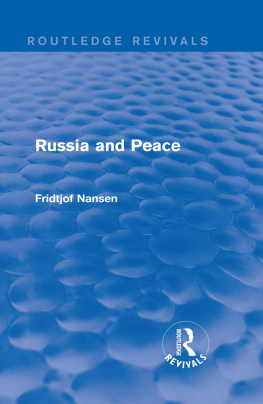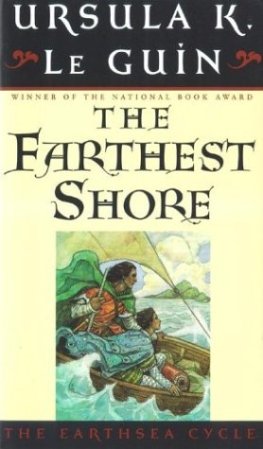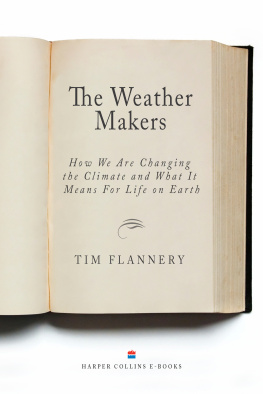Chapter I
Introduction
A time will come in later years when the Ocean will unloose the bands of things, when the immeasurable earth will lie open, when seafarers will discover new countries, and Thule will no longer be the extreme point among the lands. Seneca .
Unseen and untrodden under their spotless mantle of ice the rigid polar regions slept the profound sleep of death from the earliest dawn of time. Wrapped in his white shroud, the mighty giant stretched his clammy ice-limbs abroad, and dreamed his age-long dreams.
Ages passeddeep was the silence.
Then, in the dawn of history, far away in the south, the awakening spirit of man reared its head on high and gazed over the earth. To the south it encountered warmth, to the north, cold; and behind the boundaries of the unknown it placed in imagination the twin kingdoms of consuming heat and of deadly cold.
But the limits of the unknown had to recede step by step before the ever-increasing yearning after light and knowledge of the human mind, till they made a stand in the north at the threshold of Natures great Ice Temple of the polar regions with their endless silence.
Up to this point no insuperable obstacles had opposed the progress of the advancing hosts, which confidently proceeded on their way. But here the ramparts of ice and the long darkness of winter brought them to bay. Host after host marched on towards the north, only to suffer defeat. Fresh ranks stood ever ready to advance over the bodies of their predecessors. Shrouded in fog lay the mythic land of Nivlheim, where the Rimturser carried on their wild gambols.
Why did we continually return to the attack? There in the darkness and cold stood Helheim, where the death-goddess held her sway; there lay Nstrand, the shore of corpses. Thither, where no living being could draw breath, thither troop after troop made its way. To what end? Was it to bring home the dead, as did Hermod when he rode after Baldur? No! It was simply to satisfy mans thirst for knowledge. Nowhere, in truth, has knowledge been purchased at greater cost of privation and suffering. But the spirit of mankind will never rest till every spot of these regions has been trodden by the foot of man, till every enigma has been solved.
Minute by minute, degree by degree, we have stolen forward, with painful effort. Slowly the day has approached; even now we are but in its early dawn; darkness still broods over vast tracts around the Pole.
Our ancestors, the old Vikings, were the first Arctic voyagers. It has been said that their expeditions to the frozen sea were of no moment, as they have left no enduring marks behind them. This, however, is scarcely correct. Just as surely as the whalers of our age, in their persistent struggles with ice and sea, form our outposts of investigation up in the north, so were the old Northmen, with Eric the Red, Leif, and others at their head, the pioneers of the polar expeditions of future generations.
It should be borne in mind that as they were the first ocean navigators, so also were they the first to combat with the ice. Long before other seafaring nations had ever ventured to do more than hug the coast lines, our ancestors had traversed the open seas in all directions, had discovered Iceland and Greenland, and had colonized them. At a later period they discovered America, and did not shrink from making a straight course over the Atlantic Ocean, from Greenland to Norway. Many and many a bout must they have had with the ice along the coasts of Greenland in their open barks, and many a life must have been lost.
And that which impelled them to undertake these expeditions was not the mere love of adventure, though that is, indeed, one of the essential traits of our national character. It was rather the necessity of discovering new countries for the many restless beings that could find no room in Norway. Furthermore, they were stimulated by a real interest for knowledge. Othar, who about 890 resided in England at Alfreds Court, set out on an errand of geographical investigation; or, as he says himself, he felt an inspiration and a desire to learn, to know, and to demonstrate how far the land stretched towards the north, and if there were any regions inhabited by man northward beyond the desert waste. He lived in the northernmost part of Helgeland, probably at Bjarki, and sailed round the North Cape and eastward, even to the White Sea.
Adam of Bremen relates of Harald Hrdrde, the experienced king of the Northmen, that he undertook a voyage out into the sea towards the north and explored the expanse of the northern ocean with his ships, but darkness spread over the verge where the world falls away, and he put about barely in time to escape being swallowed in the vast abyss. This was Ginnungagap, the abyss at the worlds end. How far he went no one knows, but at all events he deserves recognition as one of the first of the polar navigators that were animated by pure love of knowledge. Naturally, these Northmen were not free from the superstitious ideas about the polar regions prevalent in their times. There, indeed, they placed their Ginnungagap, their Nivlheim, Helheim, and later on Trollebotn; but even these mythical and poetical ideas contained so large a kernel of observation that our fathers may be said to have possessed a remarkably clear conception of the true nature of things. How soberly and correctly they observed may best be seen a couple of hundred years later in Kongespeilet (The Mirror of Kings), the most scientific treatise of our ancient literature, where it is said that as soon as one has traversed the greater part of the wild sea, one comes upon such a huge quantity of ice that nowhere in the whole world has the like been known. Some of the ice is so flat that it looks as if it were frozen on the sea itself; it is from 8 to 10 feet thick, and extends so far out into the sea that it would take a journey of four or more days to reach the land over it. But this ice lies more to the northeast or north, beyond the limits of the land, than to the south and southwest or west....
This ice is of a wonderful nature. It lies at times quite still, as one would expect, with openings or large fjords in it; but sometimes its movement is so strong and rapid as to equal that of a ship running before the wind, and it drifts against the wind as often as with it.
This is a conception all the more remarkable when viewed in the light of the crude ideas entertained by the rest of the world at that period with regard to foreign climes.
The strength of our people now dwindled away, and centuries elapsed before explorers once more sought the northern seas. Then it was other nations, especially the Dutch and the English, that led the van. The sober observations of the old Northmen were forgotten, and in their stead we meet with repeated instances of the attraction of mankind towards the most fantastic ideas; a tendency of thought that found ample scope in the regions of the north. When the cold proved not to be absolutely deadly, theories flew to the opposite extreme, and marvellous were the erroneous ideas that sprang up and have held their own down to the present day. Over and over again it has been the samethe most natural explanation of phenomena is the very one that men have most shunned; and, if no middle course was to be found, they have rushed to the wildest hypothesis. It is only thus that the belief in an open polar sea could have arisen and held its ground. Though everywhere ice was met with, people maintained that this open sea must lie behind the ice. Thus the belief in an ice-free northeast and northwest passage to the wealth of Cathay or of India, first propounded towards the close of the 15th century, cropped up again and again, only to be again and again refuted. Since the ice barred the southern regions, the way must lie farther north; and finally a passage over the Pole itself was sought for. Wild as these theories were, they have worked for the benefit of mankind; for by their means our knowledge of the earth has been widely extended. Hence we may see that no work done in the service of investigation is ever lost, not even when carried out under false assumptions. England has to thank these chimeras in no small degree for the fact that she has become the mightiest seafaring nation of the world.

